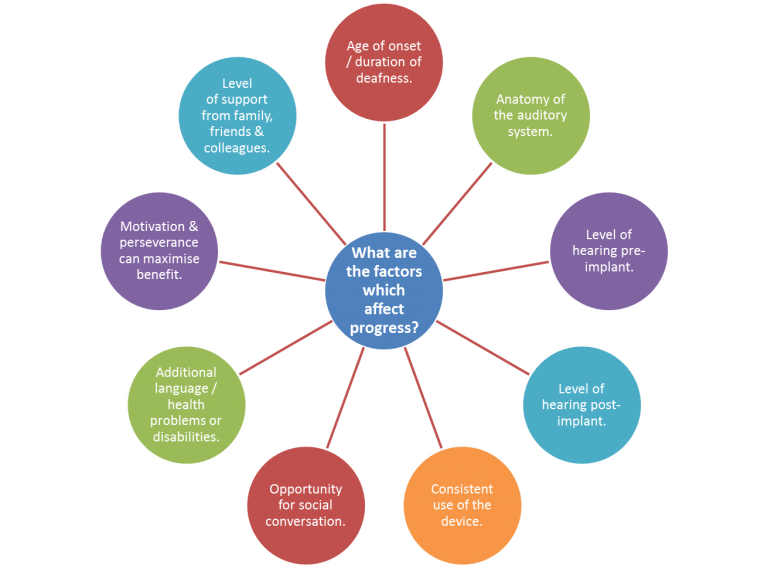
Time is spent with each patient before surgery trying to help give them realistic outcomes. However everyone is different and there are always those who exceed expectations and those who don’t sadly do as well as expected. There are a huge number of variables known to affect outcomes following implantation, some of which are shown in the diagram above.
Adults who lose their hearing later in life are likely to have better outcomes because they have a memory of sound and have acquired spoken language. The brain can map the new sound from the implant onto its pre-existing knowledge.
Cochlear implant outcomes can be more variable for those who were born Deaf. The implant can help people to hear environmental sounds, and some with time may gain benefit for understanding speech. Often patients are still reliant on lip-reading.
Key concepts
- How can you best support an adult in the early days post-implant?
- What factors can affect progress?
- What are some ideas for practise?
- What are some useful tips for how to communicate with an adult with a cochlear implant?
- How can assistive listening technology help?
